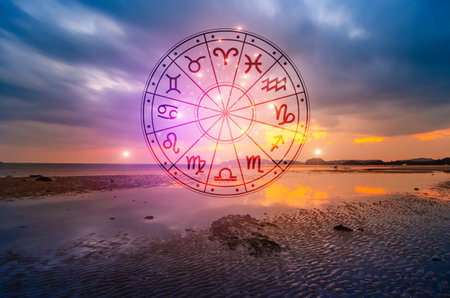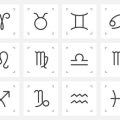Introduction to Astrology in the UK
Astrology has long been a fascinating thread woven through the fabric of British culture. From the earliest appearances of celestial omens in ancient folklore to the popularity of horoscopes in contemporary newspapers, astrology’s presence in the UK is both historical and ever-evolving. In recent decades, its influence has shifted from dusty library tomes and Sunday supplements to vibrant digital communities and social media feeds. Today, astrology is not only seen as a mystical tool for self-reflection but also as a light-hearted way for many Brits to engage with their identities and relationships. Its adaptability has allowed it to flourish across generations, blending tradition with modern curiosity and offering guidance, comfort, and entertainment in equal measure. As we explore the rising popularity of free astrology within British social media and communities, it becomes clear that this ancient practice continues to find new relevance—shaping conversations, friendships, and even daily routines throughout the UK.
2. The Digital Shift: Astrology on Social Media
In recent years, British social media platforms have undergone a remarkable transformation, becoming vibrant centres for free astrological content and lively discussions. Platforms such as Instagram, Twitter (now X), TikTok, and Facebook are now teeming with UK-based astrologers, meme creators, and community groups offering daily horoscopes, compatibility advice, birth chart interpretations, and more—often at no cost. This digital shift reflects not only a growing curiosity about astrology but also the desire for connection and self-understanding in an increasingly fast-paced world.
The Rise of Free Astrological Content
The accessibility of astrology has changed dramatically with the proliferation of British influencers and content creators who cater specifically to local cultural nuances. Whether its memes poking fun at Mercury retrograde during rush hour on the Tube, or guides to understanding your “big three” (sun, moon, and rising signs) in a distinctly British tone, users find a sense of belonging and validation within these online communities.
Popular Platforms for Astrology Engagement in the UK
| Platform | Main Features | British Community Examples |
|---|---|---|
| Visual horoscopes, reels, stories, live Q&A sessions | @ukastrologyhub, @londonstrology | |
| Twitter (X) | Threads on transits, trending astro-memes | #AstroBrits hashtag discussions |
| TikTok | Short videos explaining birth charts, compatibility tips | @britastrogals daily astro-updates |
| Private groups for deeper chart analysis and sharing experiences | “British Astrology Society” group |
The Role of Community Interaction
This surge of free content is enhanced by interactive features such as live comment sections, polls about favourite zodiac signs, or group chats discussing how eclipses might affect the upcoming football match. The communal aspect fosters a safe space for both sceptics and believers to share their thoughts without judgement. For many young Britons especially, these platforms offer not just entertainment but emotional support—a virtual cup of tea shared over star signs.
With astrology so seamlessly woven into everyday social media use in Britain, it’s no wonder that people are turning to these digital spaces for guidance and camaraderie. The blending of traditional astrological wisdom with modern British humour and relatability makes these online hubs truly unique in the global landscape.

3. Community Engagement and Interaction
One of the most significant factors contributing to the popularity of free astrology in British social media is the vibrant sense of community that has developed online. Across platforms like Facebook, Reddit, and even WhatsApp groups, individuals with an interest in astrology find spaces where they can freely express their curiosity, share insights, and seek advice without fear of judgement. These online communities act as safe havens, especially for those who might feel isolated or sceptical about discussing astrology within their offline circles.
Active forums and dedicated groups allow members to post horoscopes, share personal stories about planetary alignments affecting their daily lives, or ask for interpretations of their birth charts. The interactive nature of these platforms encourages regular participation and fosters a genuine sense of belonging among users. In particular, British astrology communities often reflect local humour, reference UK-specific events, and discuss astrological influences in relation to British culture—from weather patterns to national celebrations.
Moreover, moderators and group leaders frequently organise themed discussions or live Q&A sessions with amateur astrologers, making the experience both educational and communal. Such interactions not only deepen members’ knowledge but also strengthen bonds within the group. For many, these communities become a reliable source of emotional support and validation—a place where shared interests turn into meaningful connections.
4. Appeal of Free Astrology: Accessibility and Trust
When delving into the growing popularity of free astrology in British social media and communities, it is essential to explore why these offerings resonate so strongly with British users. Several interconnected factors come into play—most notably accessibility, economic considerations, and a cultural inclination toward scepticism. Together, these elements create an environment where free astrology feels both approachable and trustworthy for many across the UK.
Accessibility: Breaking Down Barriers
Free astrology services are widely available online, often through apps, websites, or dedicated social media accounts. For British users—who increasingly rely on digital platforms for information and connection—this convenience cannot be overstated. The ability to access daily horoscopes or birth chart readings without cost or commitment makes astrology feel open to everyone, regardless of location or schedule.
Economic Factors: The Cost-Free Advantage
With ongoing concerns about the rising cost of living in the UK, free resources have become especially attractive. Many people are looking for affordable ways to boost their wellbeing or find meaning in everyday life. Astrology offers a sense of guidance and entertainment without financial pressure. The table below highlights some key reasons why free astrology appeals economically:
Factor |
Explanation |
|---|---|
No Financial Risk |
Users can try astrology without worrying about losing money or being locked into subscriptions. |
Accessible to All Incomes |
Makes astrological guidance available regardless of personal finances or background. |
Appeals During Economic Uncertainty |
Provides comfort and insight during times when spending on self-care is limited. |
Scepticism and Trust: A British Perspective
The British approach to astrology is often marked by healthy scepticism—a tendency to question rather than simply accept mystical claims at face value. Free astrology aligns well with this mindset; there is no expectation of payment, which helps reduce suspicion and makes the experience feel less exploitative. It allows users to engage with astrological content playfully or experimentally, without feeling pressured into believing or investing more than they wish.
Summary: A Perfect Fit for Modern Britain
The intersection of easy access, cost-free engagement, and a culture of thoughtful scepticism creates a unique environment in which free astrology thrives within British social media and communities. By offering low-barrier opportunities for self-reflection and entertainment, free astrology has become a trusted companion for many navigating the complexities of modern life in the UK.
5. Impact on Wellbeing and Self-Reflection
Astrology’s surge in British social media and communities is more than a passing trend—it is intertwined with the emotional wellbeing of many users. The accessible, free nature of online astrology offers a sense of comfort during uncertain times, giving individuals something to hold onto when life feels unpredictable. For some, daily horoscopes or astrological insights serve as gentle reminders to check in with themselves emotionally, encouraging moments of self-reflection amidst the busyness of modern British life.
Within these digital spaces, astrology provides a unique language for expressing feelings and experiences that may otherwise go unspoken. Many Brits find solace in reading about planetary shifts or lunar cycles that seem to mirror their own moods and challenges. This connection can foster a reassuring sense of shared experience, reducing feelings of isolation and helping individuals feel understood—especially within supportive online communities.
Self-discovery is another significant impact. Engaging with astrology prompts users to ask questions about their strengths, weaknesses, desires, and fears. By reflecting on their star signs or birth charts, people are often inspired to consider personal growth and ways they might improve their relationships or decision-making. These reflective practices can enhance self-awareness and empower individuals to make choices aligned with their values.
It’s important to note that while astrology cannot replace professional mental health support, its role in everyday wellbeing should not be underestimated. Used thoughtfully, it can become a tool for mindfulness—a way to pause, reflect, and nurture oneself emotionally. Whether through memes on Instagram or in-depth discussions on local Facebook groups, the presence of astrology in British online culture continues to gently encourage introspection and emotional care.
Media Literacy and Critical Perspectives
As astrology continues to gain traction across British social media and online communities, it becomes increasingly vital to approach astrological content with a discerning mind. While the appeal of free horoscopes, star sign memes, and astrological predictions is understandable—especially in times of uncertainty—it is important for individuals to develop strong media literacy skills. This means not only enjoying the light-hearted and sometimes insightful nature of astrology but also recognising the potential for misinformation and the influence such content may have on personal beliefs and decisions.
The Risks of Misinformation
One concern is the rapid spread of unverified or misleading astrological information. Social media platforms like Instagram, Twitter, and TikTok often feature viral content that can blur the line between entertainment and genuine guidance. Without proper context or scientific backing, some users may take generalised statements as absolute truths, which can shape their perceptions about themselves or others in unhelpful ways.
Developing Critical Thinking Skills
To navigate this landscape effectively, it’s crucial to cultivate critical thinking. Ask yourself: Who created this content? What sources or evidence support these claims? Is there an agenda behind what’s being shared? By questioning the origins and intentions of astrological posts, individuals can better distinguish between harmless fun and potentially manipulative narratives.
Promoting Healthy Skepticism
British education often encourages open-mindedness alongside healthy scepticism—a useful approach when engaging with online astrology. It’s perfectly valid to find comfort or joy in star sign discussions, but balance this interest with a willingness to challenge assumptions. Discussing differing viewpoints with friends or within online communities can foster deeper understanding and resilience against misinformation.
Media Literacy as Empowerment
Ultimately, media literacy empowers people to make informed choices about the content they consume. By applying these skills within the context of astrology, British social media users can appreciate its cultural role while maintaining autonomy over their own beliefs. In doing so, communities become safer spaces for exploration—encouraging curiosity without compromising on truth or personal well-being.
7. Conclusion: The Future of Astrology in British Society
The surging interest in free astrology across British social media and community spaces is more than a passing trend—it reflects deeper shifts in how people connect, seek guidance, and express their identities. As we look ahead, it’s clear that astrology is likely to remain a vibrant part of British culture, evolving alongside technology and the changing needs of society.
While some may view astrology with scepticism, its growing popularity suggests that many Britons are finding comfort, entertainment, and even a sense of belonging through astrological insights. Social media platforms, from Facebook groups to TikTok creators, have made these experiences accessible and interactive, encouraging open dialogue and shared curiosity around the stars.
Looking forward, the integration of free astrology into everyday life could continue to shape social interaction in Britain. It provides new ways for individuals to start conversations, form friendships, and reflect on their lives within a supportive online environment. In this sense, astrology acts as both a mirror and a bridge—offering personal reflection while connecting people across diverse backgrounds.
Of course, it will be important for individuals and communities to approach astrology mindfully, recognising its value as a tool for self-exploration rather than absolute truth. With healthy scepticism and open-mindedness, Brits can enjoy the benefits of this age-old practice without losing sight of critical thinking or personal agency.
Ultimately, the rise of free astrology points to a broader desire for meaning and connection in an increasingly complex world. Whether used for fun or self-discovery, its presence in British social media and communities is likely here to stay—shaping not just our online experiences but also our cultural landscape for years to come.


